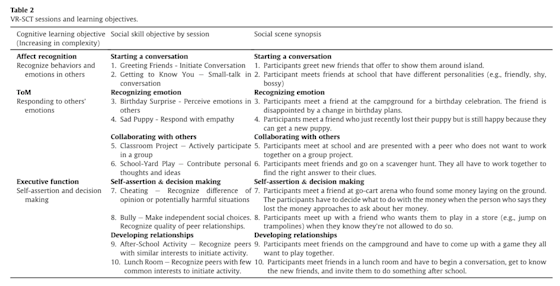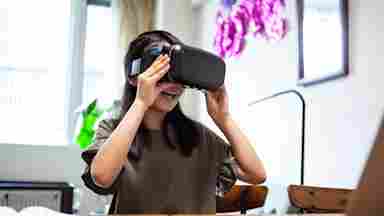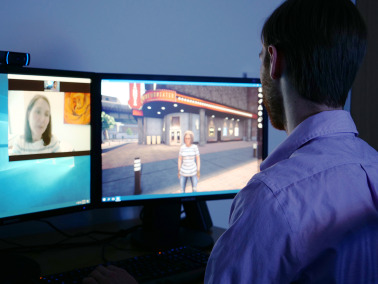Overview
This pilot study investigated the impact of Virtual Reality Social Cognition Training (VR-SCT) to determine whether it enhances the social skills of individuals with autism spectrum disorder (ASD). Previous research has demonstrated the positive impact VR training can have, and how computerized simulations of reality can be particularly helpful for individuals on the spectrum. This study extended the work of Kandalaft and colleagues (2013) and hypothesized that the participants would demonstrate significant improvements on measures of social cognition, emotion recognition, and social attribution. To do this, thirty individuals ranging from 7-16 years old were recruited. The virtual training involves simulated social encounters, allowing individuals to practice communicating with situations faced in everyday life. The simulated aspect of the training offers several benefits, including a safe environment where individuals can feel comfortable making mistakes without fearing rejection, an environment that can be catered to an individual’s needs, and a format that feels more like a game for the individuals working on their training. The training time for participants involved a 1-hour session twice per week (for 5 weeks), with data collected prior to the start of the sessions and upon completion of the 5 weeks. The novel aspect of the VR-SCT intervention in this study was that during each training session, participants were able to interact with an age-matched high functioning autistic (HFA) individual.
Table 2 - VR-SCT sessions and learning objectives




